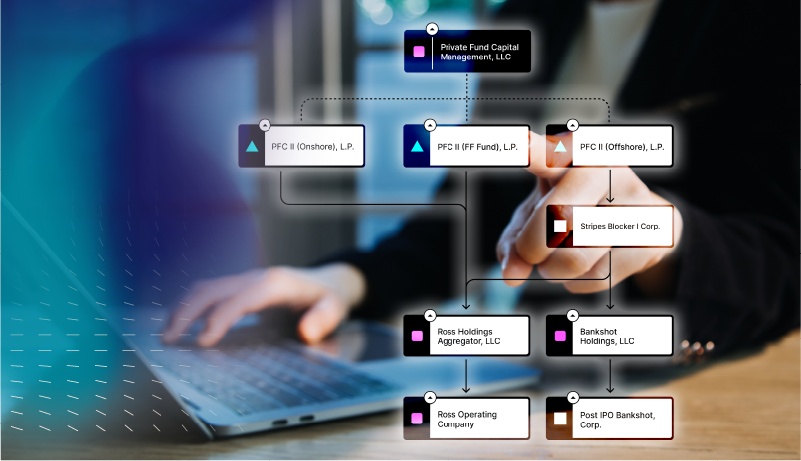Non-disclosure agreements are the key to unlocking private equity deal sourcing. Without private equity NDAs, deal professionals and advisers have no way to dig into potential acquisitions to understand each business’s strengths and weaknesses, as well as their long-term potential or viability.
These agreements impact nearly every aspect of a private equity firm. Deal teams often see hundreds, if not thousands, of NDAs annually. With competition on the rise, turnaround time is more important than ever, and a slow NDA process could mean lost opportunities.

Finally, general counsels always have their eyes on NDA language as these agreements restrict different parts of their organizations or create ongoing obligations that can lead to serious consequences if the firms violate any NDA clause, even unknowingly.
Improving the NDA process
Many of the world’s leading private equity firms already outsource their NDAs and other high-volume, routine legal contracts to Ontra, which has processed more than 750,000 documents to date. Yet it’s not just about quickly taking NDAs from start to finish.
Truly improving the legal process requires a network of experienced lawyers working in an ecosystem that turns contracts into data in a continuous effort to improve outcomes. Each private equity NDA contains a handful of key NDA terms that have a meaningful impact on the speed at which an agreement is reached and on the buyer’s and seller’s operations.
The top 10 terms in private equity NDAs
Below, we’ve outlined some of the most important terms of NDAs in the private equity space, which draw nuance from changing business conditions.
1. NDA confidential information
Confidentiality agreements are the foundation of NDAs and are indispensable in the assessment of any company. Confidential information can include all information shared in connection with the proposed deal or transaction. Sellers often want to define confidential information as broadly as possible to reduce the chance that any of their sensitive information is compromised.
Buyers, on the other hand, often want to limit the scope by excluding publicly available information or information that is already in their possession to reduce any chance of unintentionally breaking the agreement or restricting their other operations and investment decisions.
2. NDA duration
The duration an NDA is enforced on all parties is critical as, again, private equity firms have complex structures with different implications for different functions of the business. A private equity NDA that is in effect for too long could risk the firm’s ability to hire certain people, trade with certain companies, or pursue new acquisitions.
3. NDA non-solicitation clause
People are the most important part of any organization. As such, companies that are for sale will often include a non-solicitation clause in NDAs that prevents anyone evaluating the deal from seeking to hire or attract the target company’s employees to either the firm or sometimes any of its portfolio companies.
The length of time a non-solicitation clause in an NDA is in place is critical as it can often affect multiple elements of an asset manager’s operations and requires careful coordination with internal human resource departments to ensure compliance with the agreement. Sellers may include their affiliated businesses, and sometimes want to make a distinction between inducing and encouraging an employee to move, and the hiring of its employees that takes place without encouragement.
4. Definition of representatives
Due diligence is a team effort that requires both investment professionals and often outside advisers to analyze a seller’s confidential information. Sellers often want to limit access to their private information, but ensuring it’s available to the appropriate team helps speed up the timeline of the assessment and initial offer. In this case, the company sharing its information will want to ensure as many potential parties as necessary are bound by the confidentiality agreement while also ensuring the recipient of the confidential information is responsible for any breach by its representatives.
5. NDA joinder agreement
It’s common practice for buyers to have outside parties that are involved in a deal establish their rights and obligations under an NDA joinder agreement. The joinder is used to explain that the third party is granted access to the information, whether the third party is bound by some or all elements of the NDA, and that it can meet the NDA’s requirements. Buyers in this case seek to ensure that the joining party can indeed protect both the seller and its confidential information and that the agreement is enforceable.
6. No contact
In this section of the NDA, sellers try to limit buyers’ abilities to contact anyone other than those representing the company during the due diligence and sale process. This includes employees, officers, directors, customers, suppliers, contractors, or other business relations of the seller or any of its affiliates. While sellers often want the NDA to cast as wide a net as possible, buyers look to limit that in order to obtain as much information as possible.
This section includes a handful of carve-outs, or exceptions, including contact that might take place during the regular course of business, contact as part of due diligence without revealing that a sale might be pending, legally required contact, and of course contact the seller has explicitly approved.
7. Standstill
This element of an NDA is most commonly included when the potential acquisition is a public company. The term of the standstill is generally one year, but can be shorter, and covers the buying and selling of a company’s securities, any solicitation of proxies, any influence on board members, and any attempts to gain control of the company through a third party.
Exceptions are often made to permit an amount of securities trading that would not result in the gain or loss of a majority interest in the company, to permit third-party managers from trading securities on behalf of the buyer, and to continue voting, dividend, and liquidation rights attached to any already owned securities. Buyers will often refuse to accept or include them in the case of a private company and argue that it is pointless when all of the company’s securities are privately owned.
8. Non-circumvention/Non-interference
In the first instance, the buyer or private equity firm agrees not to enter into any sort of transaction to acquire the target company with anyone other than the designated seller. This is usually the easier of the two for buyers to agree with. A concern arises for buyers in the second part, in which their use of the confidential information covered by the NDA cannot harm the seller’s general business operations or the ongoing transaction.
9. Lock-up
More technically, this is a prohibition on exclusive financing agreements. It’s often written into private equity NDAs so that the seller knows the buyer cannot “lock up” financing from any one lender and block out a potentially better deal. Firms are generally willing to accept lock-ups, but look for what is called a “tree” arrangement that allows them to have an exclusive agreement with a small, specific deal team at a financing source without locking up the entire institution.
10. Retained confidential information
While sellers can request the return or destruction of confidential information, buyers also agree not to use the confidential information after the execution of the acquisition or the end of the due diligence process. The right to retain confidential information in electronic archives or pursuant to bonafide retention policies has become ubiquitous given the ordinary practice of archiving email and documents on servers that are not easily accessed or eventually deleted.
Sellers often agree so long as the information isn’t broadly available to people in the business, and often want a “tail” for confidentiality, non-disclosure, and use restrictions to extend beyond the larger NDA. Buyers typically try to shorten the tail, arguing that most of the information is quickly outdated.
Are you managing NDAs with the speed and precision the market demands?
A deep understanding of the handful of private equity NDA terms can have a meaningful impact on the speed at which an agreement is reached and on the buyer’s and seller’s operations.
When you streamline your NDA workflows by taking advantage of NDA outsourcing powered by Ontra’s network of experienced lawyers who turn contracts into data, you can truly achieve the speed and precision the market demands. With Ontra’s Contract Automation solution, you can turn around private equity NDAs in mere days, while relying less on outside counsel and freeing internal employees to focus on strategic work.
This blog was originally published on May 7, 2021.


